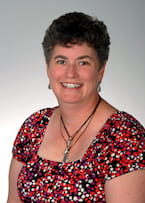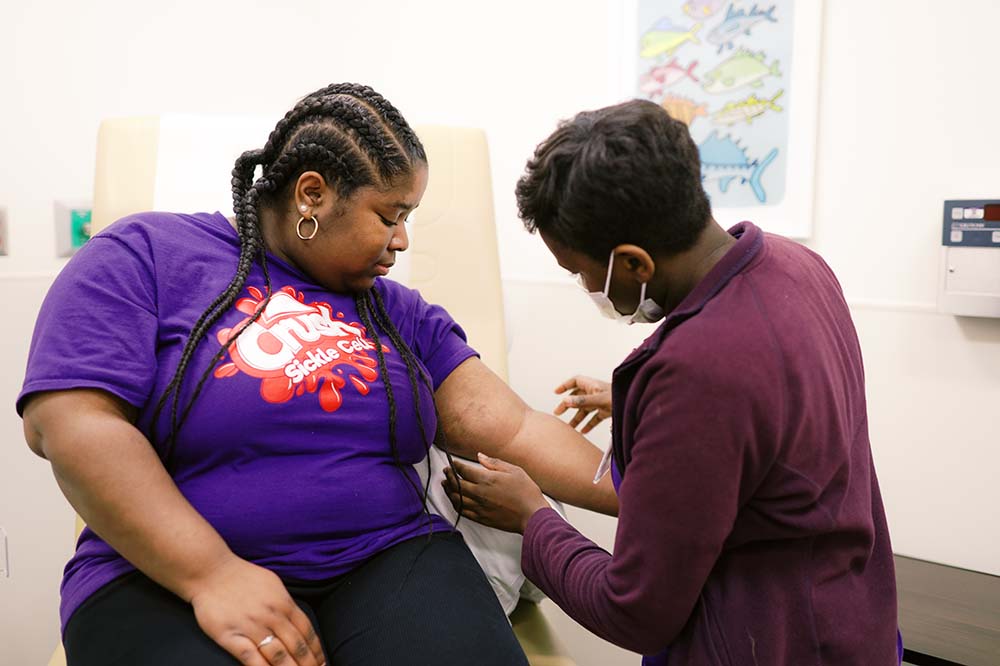Olivia Peterson, 23, is thrilled to be a participant in a clinical trial at the Medical University of South Carolina, testing one of the latest in a wave of treatments for sickle cell disease.The Georgetown woman got the news that she qualified for it earlier this year. "To be honest, I was completely overwhelmed. Because this has been something that I've been hoping for, for a long time."
This is the era a lot of people have been hoping for. Sickle cell disease affects 1 out of every 365 Black babies born in the United States. The inherited condition causes red blood cells to become misshapen and die sooner than they should. They also clog blood flow. As a result, sickle cell disease can cause pain, infection, a potentially life-threatening chest condition and strokes. It may also shorten life expectancy.
The Food and Drug Administration just approved what it calls milestone treatments for sickle cell disease: Casgevy and Lyfgenia. They are the first cell-based gene therapies for sickle cell disease in people 12 and older. In such treatments, scientists alter cells to make them work differently.

And more potential treatments, including the one Peterson is getting at MUSC, are in the works. Peterson is enrolled in the Ruby trial, sponsored by Editas Medicine. This week, her stem cells will be collected in Charleston and rushed to a lab in Boston to be edited with CRISPR technology. CRISPR, short for clustered regularly interspaced short palindromic repeats, can modify DNA.
In the Ruby trial, the goal is to create healthy red blood cells that contain fetal hemoglobin. The edited cells will be put back into Peterson, where the hope is that they will create healthy red blood cells that do not have the sickle shape that's the hallmark of her disease.
Jennifer Jaroscak, M.D., a sickle cell and cellular therapy expert at MUSC Health and a professor in the College of Medicine at MUSC, is leading the Ruby trial in Charleston. She has also worked with other young adults with sickle cell disease in different trials, including the one testing Lyfgenia. That study stood out, she said, for the life-changing results it offered patients.
"To be able to see them not need to be hospitalized, not need to come into clinic once a month or once every other month, to not need IV pain medicines to control their pain, their life just changes so dramatically. They're free to live their lives where they're not going to need to take time off because they're having a pain crisis."
But getting to that point isn't easy. The treatments involve multiple steps, including high-dose chemotherapy. "The process is intense," Jaroscak said.
The treatments also require sites that have the technology and expertise to carry out those steps. MUSC Health has both, through the Rena N. Grant Sickle Cell Center and the MUSC Children's Health Sickle Cell Center.

Peterson has been an MUSC Health patient since she was about 13. She's glad she has access to the trial because her disease has put parts of her life on hold. "I've been wanting to go back to school for the longest. It's just been so hard because if I'm having a crisis pretty much every single week, I can't do it. I wanted to enjoy moving out of the house, going to school, being with everybody and of course, my body just wouldn't allow for that. So I had to put that on the back burner and try to get my health under control."
If the treatment works like she hopes it will, Peterson has big plans. "I want to get into the medical field. After all of this, I am hoping to become a sickle cell advocate because that's the biggest dream I have right now."
That dream depends on how the trial goes. Peterson can't wait to find out. "I'm very excited. It's kind of hard to explain because it's like that one opportunity that you've been in the back of your mind hoping for for the longest, and it's finally there. And even though it could be overwhelming, it's just like you could just take and grab it. It's right there just in front of you, and you just have to do a few more steps to get there," she said.
"It was frustrating seeing other blood disorders and other illnesses get cures and treatments and stuff like that, and feel like we hardly have anything other than just taking pain medicine and blood transfusions and things like that. So I feel like we're definitely taking great strides in the right direction for sickle cell."






